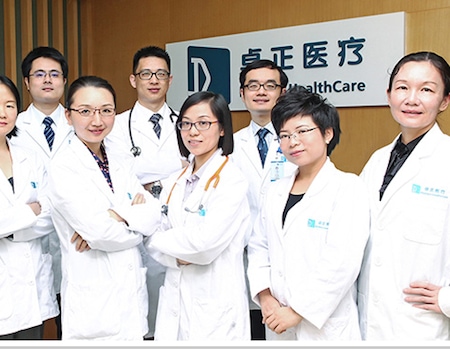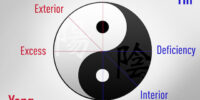Do doctors in China need to speak English?

In the 21st century, the proliferation of knowledge and global migration of people are transforming the world into an interdependent community. Cross-border academic exchange in the medical realm becomes necessary and increasingly frequent.
Although English as a language is a compulsory course in school in China, its teaching focuses on daily communication or general English (as designated by linguists). English language for medicine is ignored. Medical English in China is accessed via a list of terms provided by teachers of medicine, who are likely incapable of instructing learners in the correct pronunciation and are therefore unable to train students in language skills.
Professional discussion
Chinese doctors feel incompetent in prompting professional discussion, no matter how proficient they may be in talking about the weather. In view of this circumstance, our department, which is devoted to medical English teaching and research, initiated an in-career programme to train doctors in medical English.
At the Third Military Medical University, Chongqing developed a programme after conducting surveys and tests to establish what was required. Once requirements were established, training sessions were offered to the departments of affiliated hospitals at a rate of one session per department. Departments that noted a requirement for training were asked to contact us and join the programme.
Doctors were keen to improve their listening and speaking skills, especially for the purposes of participating in academic conferences. We selected materials accordingly and adopted a learning-centred methodology, emphasising both language acquisition and the learning process.
Learning English
For language acquisition, medical terminology characterised by word-building rules was illustrated. Pronunciation was corrected and model texts were read aloud and imitated. We explained the functions of sentences and the contexts in which they are used. Trainees were asked to perform role-plays to practise communication skills.
To enhance the learning process, we chose materials that were comprehensible to the participants and arranged problem-solving activities that require participants to actively think about and try to make sense of what they see, feel and hear. As feelings evoked in the learning process crucially influence the results of learning, we attempted to create a sense of achievement in trainees by tailoring the materials to an appropriate level.
Results of medical programme
Generally, the programme is successful and helps doctors to make great progress in medical English. Data for a course run in February 2011, which was attended by doctors from the gastroenterology department of our second affiliated hospital, show that the 20 doctors who attended obtained significantly higher scores on vocabulary and listening.
Participants showed more confidence and greater fluency in speaking, and made fewer errors in pronunciation than they had before the course. They also successfully held the Sino–Japanese Symposium on Early Cancer of the Gastrointestinal Tract in September 2011. Most of the participating doctors felt satisfied with their performance and with the programme. The training programme has now been implemented for 2 years consecutively and will be continued in the coming year.







